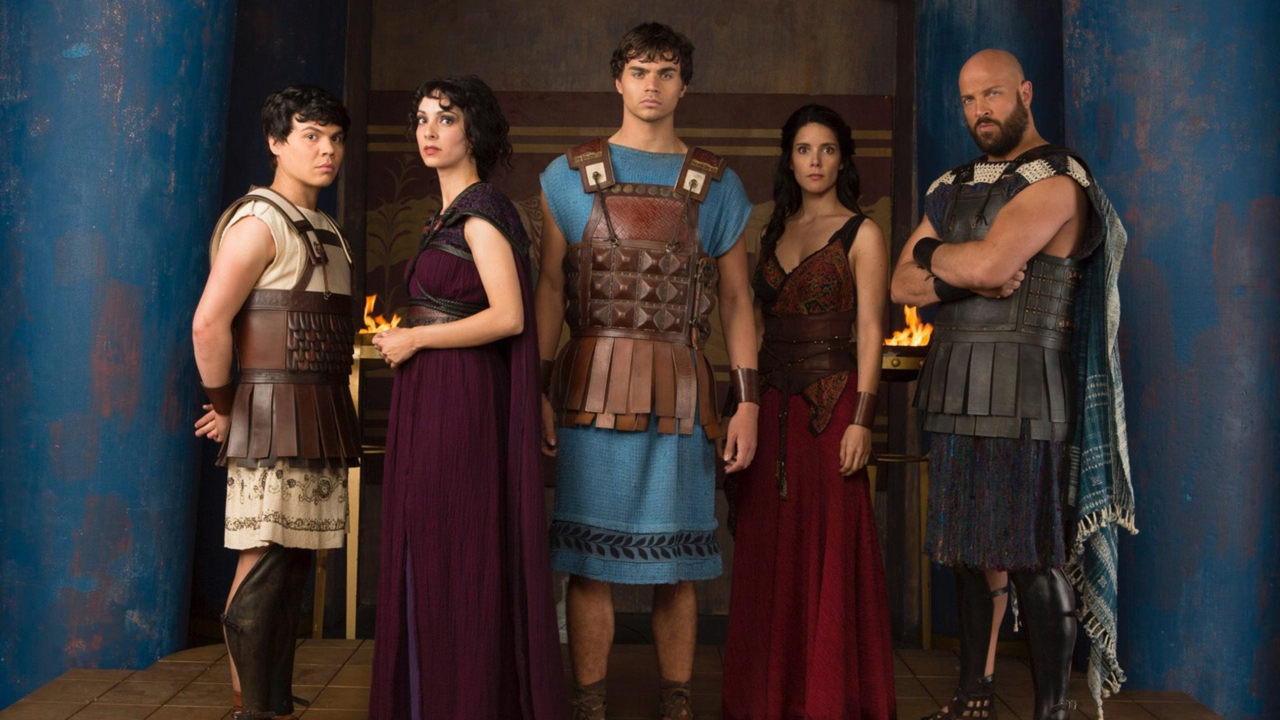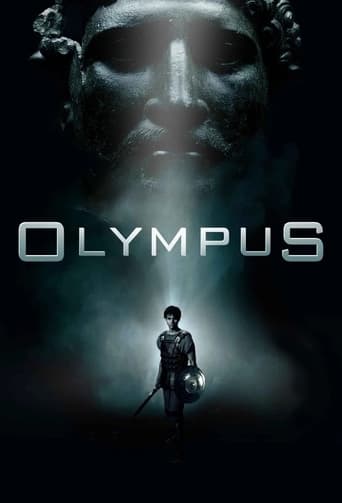

First please let me admit that i haven't seen the whole series; i couldn't finish the second episode.This series seemed to think that you could throw mythology and history (...and geography) out the window, inventing a story out of whole cloth, still use the historical and mythological names, and create something new, exciting, and interesting.It does not (and probably can not) work. If this series was populated by new characters, new places, and had no historical burden, i believe i could have watched it. As it is, it was simply impossible to get beyond the burden of suspending disbelief. The plot seemed to be inconsistent, and the dialogue appeared to be flawed...but i cannot say this for certain.This was a new tale, and it should have been told without borrowing and mis-using characters from history and mythology. One doesn't keep writing on a full blackboard; one erases the board to make room.
... View MoreThose ancient stories have survived over 2000 years. Why do US show runners and producers feel the need to change them? I'm not talking about slight changes, but changing a story that makes perfect sense into a mishmash of stereotypes and anachronisms, resulting in only making the story look weak.Amazing there isn't a Rome-like show about mythic Greece... That's what we need, not this watered-down, incoherent and boring story.Also, the horrid CGI combined with the cheap artificial lighting ruins any semblance of art direction.
... View MoreThere has been a good bit of criticism regarding the production budget of this series. I don't have the numbers right at hand, but clearly the great majority--if not all--of the shooting is done on a sound stage. This saves money, of course, but I think there is more to it. The world of Olympus is set in ancient Greece; but it is a world in which the gods are real, and supernatural powers are part of ordinary existence. I think that the oddly-crafted set pieces are deliberately intended to evoke a world that is similar to our own, but not quite ours. Perhaps this world is a psychological state of mind; the series synopsis tells us that the gods will eventually be consigned to the world of the unconscious, what they call the Underworld, or Hades. When this happens, the entire world will change...is this not perception? Watching this series brings to mind the German Expressionist movement in film. They both share the use of stylized set pieces, and the plots and stories of both often deal with madness, hallucination, and betrayal. And let's not forget that film noir arose out of expressionism; the eerie, atmospheric lighting, somewhat hapless protagonist, and the irrepressible femme fatale elements of noir can be readily by seen in Olympus. If you examine this series through that lens I think you will gain a better appreciation of it.UPDATE: It is Aug 26 2015, and I wrote the above approximately a week before. I had not viewed the entire series by then, but I have now. If you have already made up your mind about this series, and decided that you hate it, nothing I say here will effect your opinion. But if you like the series, or are still undecided, I encourage you--nay, I entreat you--to watch it to the end. The final three episodes are spell-binding, and the season (perhaps series) conclusion is quite surprising and satisfying. This series has cemented its position on my short list of best series ever. It went by so fast I could hardly believe it was over. You owe it to yourself to give this show a chance.
... View MoreOverall I like the show. It is an interesting story, a fantasy related to Greek mythology. To follow the story however it is critical that one is able to understand what each character is saying when he or she delivers their lines. One character consistently mucks this up: Daedalus. Mr Frewer does a good job overall playing his role. However, the breathy delivery he gives his lines makes them extremely difficult to understand. He means to convey the wonder of his discoveries and realizations by this breathy speech, but he overdoes it. The effect this has upon viewers is not what the director no doubt hopes for; instead of perceiving a sense of awe or wonder the viewer experiences frustration at not being able to understand what might be an important point. Even if it were possible to understand the lines, using this breathy speech would be an effective technique only if used sparingly. But Daedalus rarely says anything without dropping all tone from his voice in the last half of each sentence (causing viewers to strain to try to make out what he is saying). Not everything he says is an earth shattering discovery of science or wisdom. But the director has him deliver nearly all his lines the same. It is a lazy and cheap way to act the role. It isn't necessary to speak in a raspy, whisper to convey a sense of wonder or an experience of some epiphany. And it greatly detracts from the performance of an otherwise interesting character and the understanding of the storyline. For this reason primarily I am giving this show only a 4.I have one other main criticism of this show. The title of the show and the names of the main characters suggest that the story is a retelling of or perhaps merging of Greek myths. That is the hook which tricks viewers into watching the show. But the show is actually a vehicle for promoting the neo-religion which worships "Gaia", the 'Earth Mother" god. Gaia is a recent invention of the environmentalist movement. The message is that there is no God, no heaven but what you make of your time in this physical world, and spiritual beliefs are merely illusions which will disappoint you. Science is the path to wisdom and the only valid religion is allegiance to the religion of environmentalism represented by Gaia, the earth mother. In this, the show mimics the recent trend in education of debunking traditional beliefs and values and implanting of religious devotion to humanist and environmentalist dogma. This is most easily accomplished by co-opting well known myths, then altering them to fit a preferred ideology. Nobody likes to be lied to, and the implied promise of a retelling of Greek myths is broken. Why do so many reviewers give this show such low ratings? Could it be that nobody likes to be lied to?
... View More